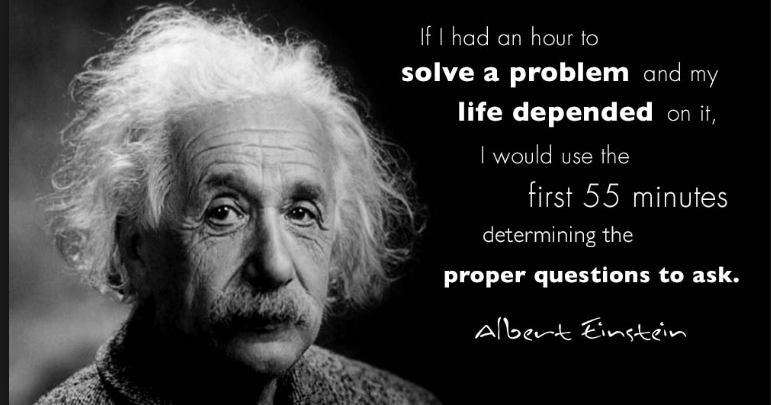Re-visit: Questions?
- andrew06163
- Feb 10, 2023
- 3 min read
In both editions of Get a G.R.I.P., chapter 18, "Questions?" remains one of my favorites, and not just because the song that goes along with it is a Moonshots original, "Q & A." Why do I like Chapter 18 so much? Is it because I am a "natural interrogator" as described in James Redfield's Celestine Prophecy? (In his somewhat-controversial-yet-also-insightful 1993 novel/parable, Redfield talks about "4 Dramas: 1) the Intimidator, 2) the Interrogator, 3) the Aloof, and 4) Poor Me. Of the four, I definitely can slip into the interrogator mode most easily. Check out the book or read a description of the 4 if you want to know where you "fall.")
Maybe that's it. I have always been curious, and usually my curiosity has served me well, except on those few occasions where I almost became that cat that curiosity killed.
Why re-visit "Questions?"? Because there's so much more to explore about questions than what you've (hopefully) read in Get a G.R.I.P. I used the chapter to introduce the very powerful practice of "Appreciative Inquiry" (a practice that needs a new abbreviation, now that AI as "Artificial Intelligence" is taking over the world). Here, I'd like to dive briefly and yet deeply into this meta-question: What is a question?
First, if you're reading/skimming fast, can you go back and read the question again? Now, note your own answer to that question. Is it, "What do you mean, Andrew? Everyone knows what a question is!" Or is it, "Hmm...isn't it just what we do when seeking an answer or clarification?" Or...."It's one of the 5 Ws and 1 H–Who, What, When Where, Why, How"? All of these are legitimate answers, as is the one you did come up with.
When I ask myself "What is a Question?" I immediately follow with another question, "What is a question's purpose?" And I find many, and not all of them positive attempts at finding good answers. Some questions are used to interrogate, some to intimidate, some to avoid confrontation (e.g., "Why are you asking me?"), some to show off what the questioner already knows or wants to show that he or she knows. I'm sure you can come up with a few more purposes for any given question.
What do you do with questions that are asked of you? I notice that especially in e-mail exchanges, sometimes people simply ignore questions. (This can really raise tensions.) And partly we ignore them because the questions are buried in a bunch of other text, and it's sometimes hard to decipher whether the questioner is really looking for an answer. In synchronous communication (as opposed to e-mail's asynchronous nature), we can show that we really want an answer. We make deliberate eye contact, we pause, and, if we're polite, we listen to our counterpart's answer, then use clarifying questions to determine, rather than guess at and imbue, motives, reasons, that are often incorrect.
That's just one of the areas I wanted to explore today: "What is a question?" The second is something I discovered while listening to a presenter a few years ago. I don't remember who he was, but I will always remember the effect of his questions. He started by asking a couple of simple questions, like, "What is your name?" "Where were you born?" and so on. The amazing thing the presenter showed was that by stating up front that he would ask a few people to respond, and then asking questions, he revealed an astonishing fact (at least astonishing to me): Everyone (including me) was automatically answering the questions he asked. He claimed, thus, that we human beings are "answering machines" not in the old telephone answering machine sense, but in the sense that we are conditioned to answer every question put to us. I can't control your answer, but by asking a question, I am controlling what you are thinking about. If I ask, "What's your favorite food?" you may say (or think), "Cheese enchiladas," or "pad thai" or "sushi," or even, "I don't have a favorite food." But there's no way, save for deliberately ignoring me, that you can avoid thinking about what might be your favorite food.
What does all this mean? To me, it means, just as Chapter 18 recommended using a specific set of "appreciative" questions (e.g., "What's working well?") rather than attempting to "solve problems," the "question" is even bigger: What are the best questions you can ask, of yourself and of others, in order to help you and your organization get to where you want to go?






Comments